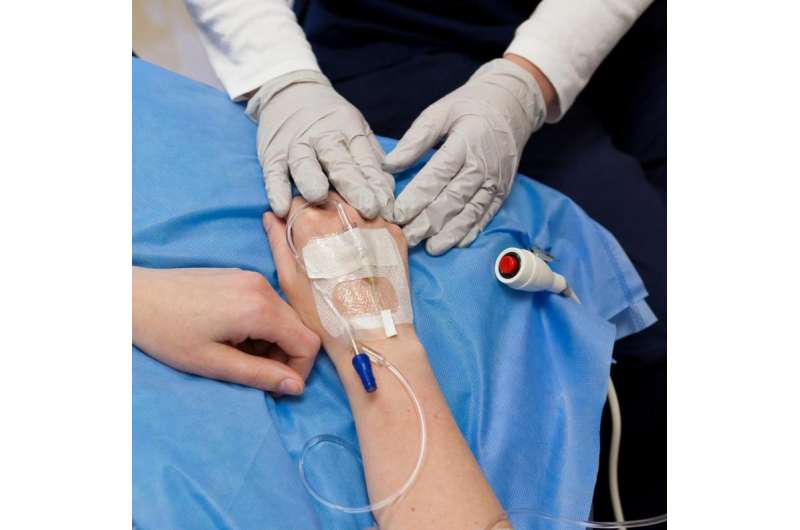Pharmacists' study helps prevent antibiotic-induced kidney failure

When associate professor of pharmacy practice Tadd Hellwig and three pharmacy colleagues at the Sanford USD Medical Center noticed that some hospital patients given two common antibiotics developed kidney failure, they decided to take a closer look.
What they discovered led to closer monitoring of patients receiving vancomycin and piperacillin-tazobactam due to an increased risk of kidney damage.
Vancomycin is used to treat patients with staph bacteria that are resistant to antibiotics, Hellwig explained. Piperacillin-tazobactam is a broad-spectrum antibiotic combination.
"Both are very common within the hospital setting," he said, noting that they are given intravenously.
Looking at numbers
"People associate vancomycin with nephrotoxicity," said Sanford collaborator pharmacist Rhonda Hammerquist. She recalled that the question about whether the combination of vancomycin and piperacillin-tazobactam increased that risk came up during a weekly residency program meeting. Others involved in the study were Sanford pharmacists Beth Loecker and Jamie Shields.
The antibiotics can be used for several types of infections, including skin and soft tissue infections, as well as pneumonia, Hammerquist explained. "Based on our population, we see this combination quite frequently."
The researchers identified 735 Sanford USD Medical Center adult patients who received vancomycin, piperacillin-tazobactam or both during two 3-month periods, one in 2009 and another in 2010.
From 2009 to 2010, the procedure for administering piperacillin-tazobactam changed from a 30-minute to a 4-hour infusion time.
More than 20 percent of the 109 patients who received both antibiotics in the shorter infusion time developed acute kidney failure, according Hellwig. Among the 101 who received the drug combination infusion over the longer period, the incidence of kidney failure was 16.8 percent.
This is significantly higher than the overall 10.5 percent rate of acute kidney failure for all the patients in the study, he noted. When only piperacillin-tazobactam was administered, the kidney failure rates decreased to 13.5 percent for the shorter infusion time and 8.4 percent for patients who received the antibiotic over the 4-hour period.
"Piperacillin-tazobactam results in more acute renal failure than vancomycin," Hellwig pointed out. With vancomycin alone, the kidney failure rate dropped to 4.9 percent.
Sharing results, monitoring patients
"We were among the first groups to look at and present the data," Hammerquist said. That then led to educating the Sanford staff about what they had learned.
"This is one of the first big research projects that I've done," Hellwig said. "It showed me that even without grant funding, I can still look at problems, do research and get results that can improve patient care."
Tyler Turek, pharmacy clinical manager at Sanford USD Medical Center, said, "Overall, this study heightened our awareness of the need to consider alternative therapies whenever clinically appropriate."
Hellwig and his colleagues presented their results at the February 2012 Society of Critical Care Medicine annual meeting. Their work was one of two studies subsequently highlighted in the June 2012 Pharmacy Practice News.
"It opened the doors for lots of others to look at it further," he said. Researchers from the University of Florida-Jacksonville, Duke University and Campbell University in North Carolina and the University of Maryland published similar studies in a 2014 issue of Pharmacotherapy.
"This work continues to highlight the role that our pharmacists have as experts who can identify opportunities for improvement in medication-related care," Turek said.
Hellwig agreed. "Within a hospital setting, we are able to identify these types of problems, then do the research to clarify what the results actually are and how to use those results in daily monitoring of patients in the hospital."















